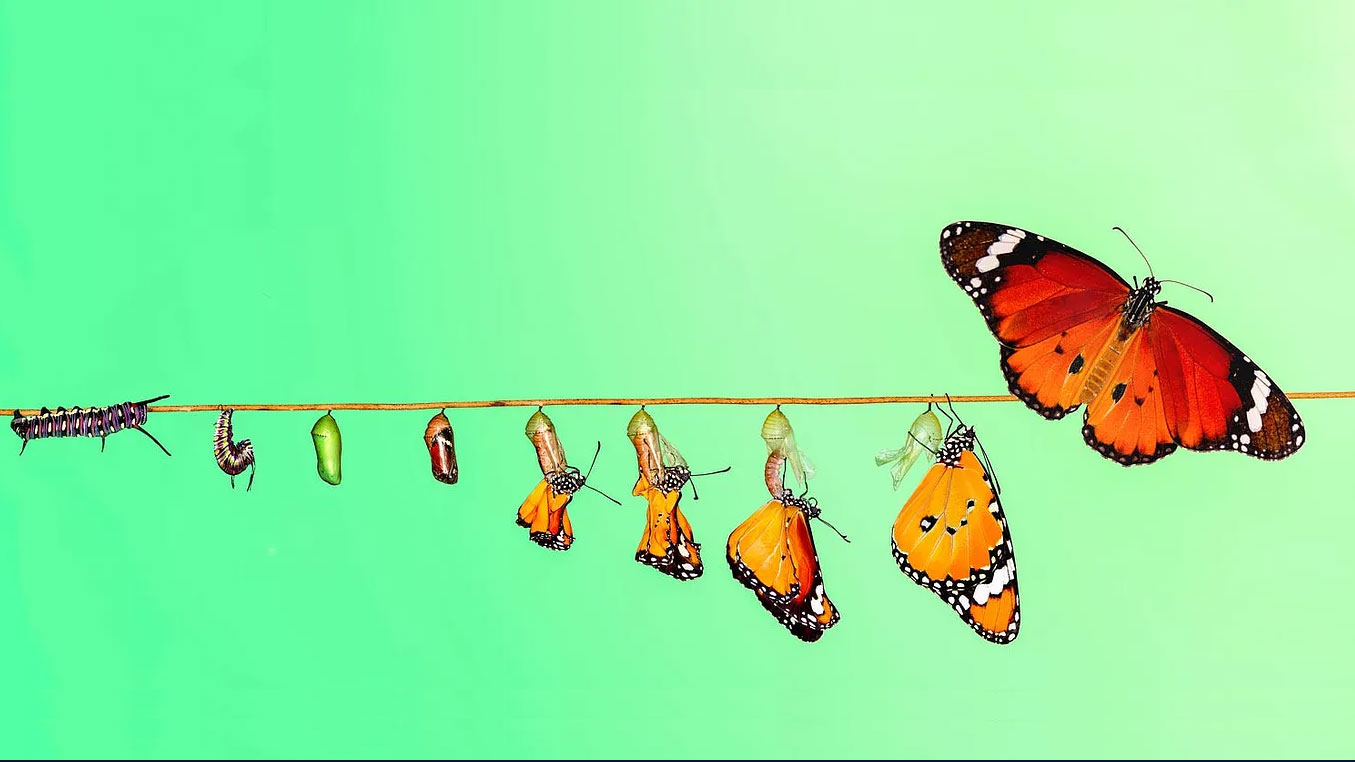Do Morals Need Religion? Ask Your Pre-Verbal Toddler
When it comes to moral behavior, infants and toddlers have something to say. Grown-ups should listen.
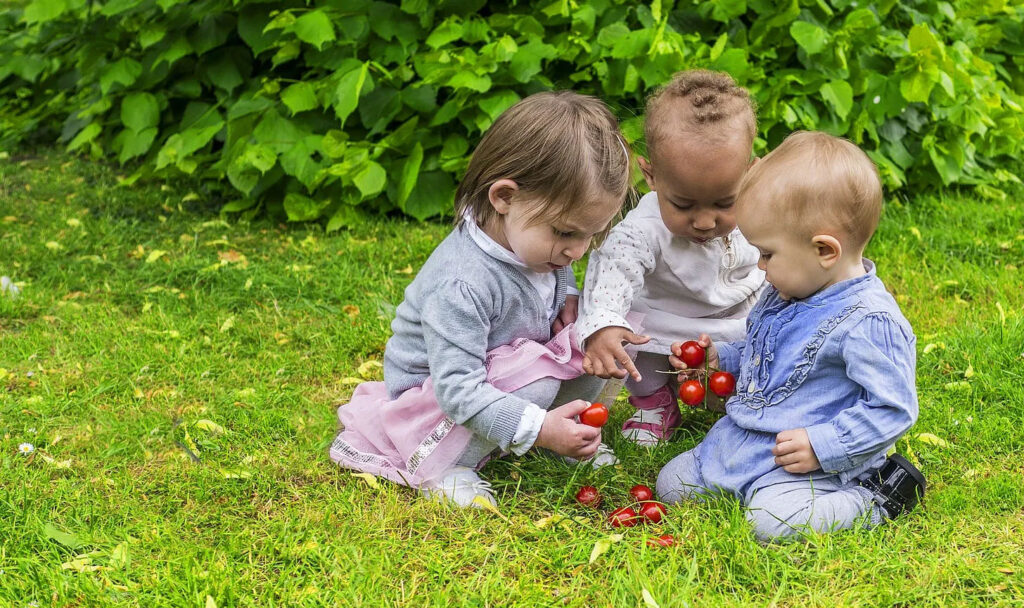
Around the world, our involvement with religion is changing. Participation in religious activities is declining in well-resourced countries where citizens feel relatively secure about a stable future. In countries that are less resourced and where citizens’ futures are more uncertain, participation in religious activities is increasing.
What impact does declining participation in religious activities have on morality? Does distancing ourselves from religious congregations inevitably lead to a decline in our moral standards?
The Christian Bible contains narratives that caution against abandoning religious teachings and illustrate the consequences of straying from spiritual guidance. The story of Moses and the Ten Commandments highlights the doctrinaire belief that people fall into sin without clear moral directives to guide them.
A Strong Man for the Feckless Faithful

In Exodus 32:1–35, God ordered Moses to trek up Mount Sinai to receive the Ten Commandments, which embodied moral and ethical conduct. During Moses’ long absence on the mountain, the Israelites forgot his firm guidance and resorted to their heathen ways by forging a Golden Calf, which they began to worship. The Israelites went so far as to hold a Golden Calf Rave, which resembled Spring Break festivities held by college students in Miami Beach. Basking in the shadow of the Golden Calf, they engaged in all sorts of debauchery and revelry fueled by the fruit of the vine.
Upon witnessing the Rave festivities, Moses was infuriated by the Israelites’ sloppy, drunk partying. He confronted his brother, Aaron, whom he blamed for failing to prevent this debacle. In his defense, Aaron said, “Do not be angry, my lord. You know how prone these people are to evil (Exodus 32: 22).”
Moses was not appeased and ordered the Levites, a tribe loyal to him, to execute 3,000 idolaters. The people got the message from Moses’ firm hand: the consequences of abandoning divine commandments and moral authority are severe.
(Parenthetically, we can only imagine the consequences of Moses visiting Miami Beach during Spring Break.)
From this Old Testament story in Exodus, we see a core Biblical teaching from Aaron’s own lips: “You know how prone these people are to evil.” Here, we learn that without firm supervision by an agent of God, ordinary people will lose their morality and descend into depravity. This message was underscored by the fact that the unfaithful Israelites died at the hands of the faithful Jacobites.
In the three thousand years since the Old Testament was written, many people still believe that human morality comes from the enforcement of religious doctrine. Without these doctrines, people are prone to depravity, and a lifestyle without a doctrinal moral code will lead to spiritual death.
How Do Humans Become Moral? Religion or Inherent?
Are we to believe Moses’ brother, Aaron, that people are prone to evil? This belief coincides with another Biblical story of creationism, during which God scooped some dust from the ground in the Garden of Eden and created Adam. He then took a rib from Adam to create Eve. Adam and Eve had a pretty good life in Eden until Eve had the dumb idea to eat fruit hanging from the Tree of Knowledge, which she shared with Adam.
As we know, the story of Adam and Eve did not end well. They were bounced from Eden. Even worse, Adam and Eve were punished by all their descendants being born with Original Sin. According to this Old Testament doctrine, we are sinful right out of the box.
Given a two-thousand-year history of religion-based morality, what are secular people to believe about their personal moral values that have no foundation in religious doctrine?
Is morality learned, or does it have an origin independent of religion? Even more to the point:
Are humans the only moral creatures on earth?
Non-Human Morality
In Sub-Saharan Africa, there is a species of ant, Metabeles, whose food source is termites. Go figure — the food source of their choice attacks them in defense. For these ants, it’s our equivalent of eating a pizza that comes with sharp teeth.
When looking for a meal by attacking termites, these ants are often wounded and become infected. Like soldiers who never leave a fallen comrade behind, these ants detect injuries in their comrades and treat their wounds with an antimicrobial substance they make themselves. To quote a researcher who studies these ants:
“They have a very sophisticated system of coping with dangerous and sometimes deadly infections with remarkable efficacy. We can learn a lot from these tiny creatures.”
Looking at non-human morality on a larger phylogenetic scale, elephants show how they care for their dead. Scientists have documented Asian elephants in northern Bengal, India, burying their dead infant calves. One elephant was documented dragging a dead calf three miles to a drainage ditch, where the calf was buried in a carefully arranged position (head down, feet and legs up), then covering the deceased calf with foliage. Friends and relatives of the grieving mother gathered and made loud vocalizations, sometimes lasting as long as 30 to 40 minutes, before leaving the area.
These are two examples of non-human morality. I could cite many more, including trees in a forest collectively caring for one another. Considering that neither ants, elephants, nor trees attend religious services, could moral behavior be a natural phenomenon with an existence much broader than humans?
The Unity of Morality and Religion. Can They Be Separated, Like the Yoke From The Egg?
Religion is pervasive in all human societies. How can we disentangle morality from religion to learn how these two aspects of humanity are related — or not?
Fortunately, many scientists have asked this same question, and they have approached this problem by studying the moral judgments and behaviors of areligious humans — namely, pre-verbal infants and toddlers.
If the babies can’t talk but make moral choices, perhaps we can conclude that their moral values exist prior to exposure to religious doctrine.
Engaging Infants and Toddlers in Morality Research
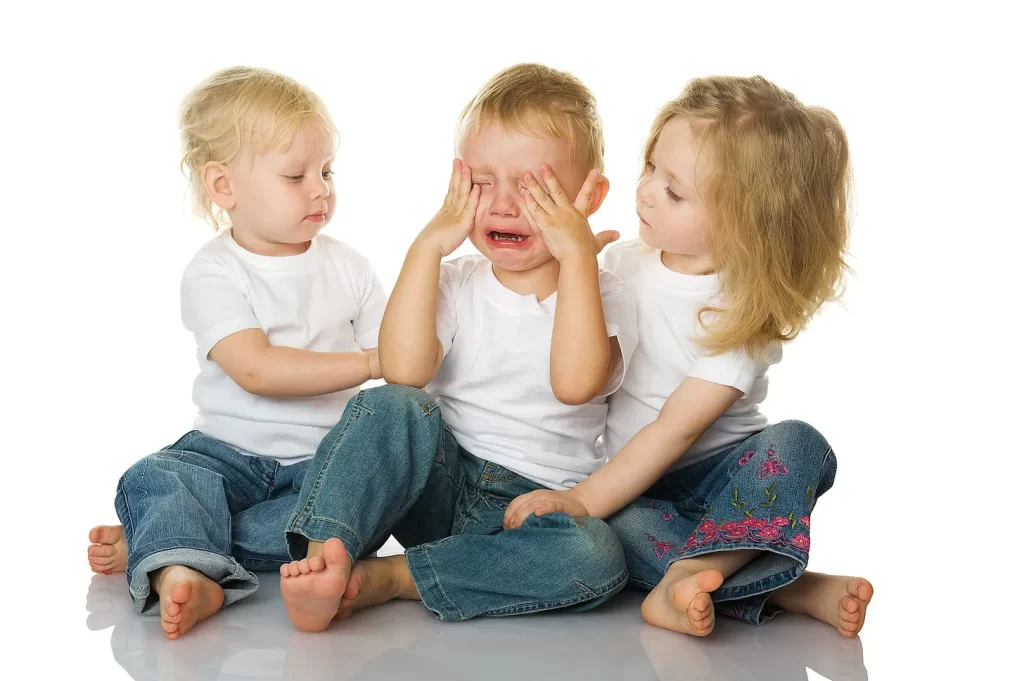
At this point, you may be wondering: how do scientists conduct morality experiments with tiny humans who can barely hold up their heads and have an attention span of about 10 seconds?
Welcome to the world of infancy researchers. In university labs located internationally, these academics have devised clever animations to engage infants and toddlers ages eight months to two years or more.
These labs use different attention-getting strategies, but they range from puppets to distinctly shaped online characters, although the figures may not resemble a baby or adult human. These figures may be human-like or geometric shapes. Interestingly, figures and shapes without eyes fail to get an infant’s attention. Even dots representing eyes work as infant attention-getters.
The researchers create scenes showing interactions between the figures and observe a variety of responses, such as head turns, length of gaze, or pupil dilation. Most studies involve several situations conducted under different social interaction conditions, which generates more data for analysis. Each study can involve dozens to hundreds of infants and toddlers.
I should add that every study must have prior approval from the sponsoring university’s Institutional Review Board (IRB) to ensure the safety of the children and the privacy of family history. This review process is rigorous, as I know from having served as a member of the Massachusetts Department of Mental Health IRB for several years.
What Have We Learned From Infants and Toddlers About Their Morality?
In this section, I will briefly present the major findings from several relevant studies conducted recently:
A Rudimentary Moral Core: Infants and toddlers differentiate between figures that interact positively and negatively. They prefer “prosicial” to “antisocial” figures.
Sympathy for Victims: Infants show rudimentary forms of sympathy, preferring the victims of an aggressive character over the aggressor (such as when one “bullying” figure bumps hard against a “victim” figure). This appears to demonstrate an emerging capacity for empathy.
Third-party Punishment: By eight months of age, some infants used their gaze to punish an antisocial figure, an onscreen character that destroyed objects or pushed over “victim” figures. The punishing gaze occurred much earlier than previously thought, suggesting an early-emerging human trait for cooperation and moral enforcement.
Social Preferences Based on Similarity and Dissimilarity: Both 9- and 14-month-old infants showed a preference for individuals who treated similar others well and treated dissimilar others poorly. This suggests an early bias to favor those who share infants’ preferences (food likes) and to reject those who do not (food dislikes).
Understanding of Social Norms: By 11 months, infants understand that figures doing similar actions (conformity) are preferred to another figure doing something different (non-conformity). This indicates an early grasp of social norms and belonging.
Recognizing Comforting Behavior and Distress in Others: By 12 months, infants can evaluate comforting behaviors shown by cartoon figures. Infants show a preference for figures that respond appropriately to others in distress.
Early Moral Concerns and Judgments: Through social interactions in the first three years, children understand that physical force harms others. These toddlers become increasingly concerned with others’ welfare and begin making categorical moral judgments about harming others.
How Do We Explain Pre-Verbal Infant and Toddler Morality?
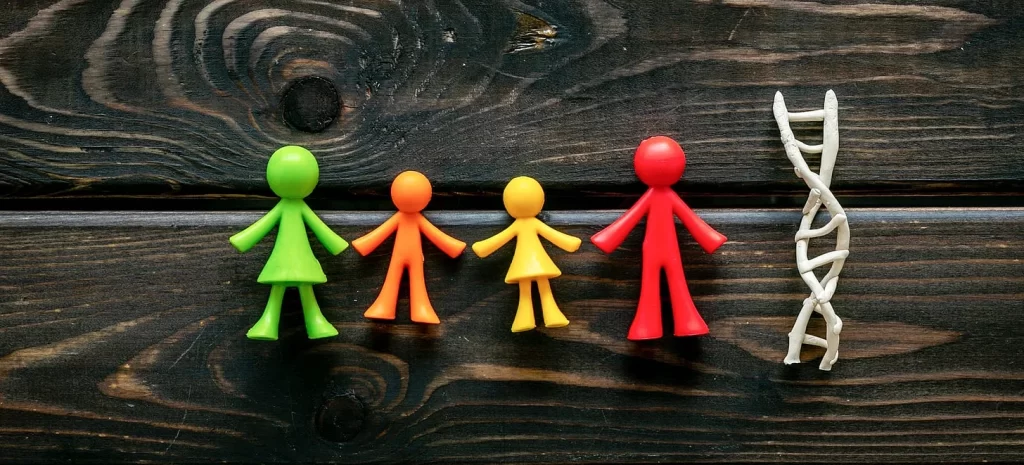
These and other studies show that infants and toddlers make choices about social circumstances and consequences, suggesting an inherent emergence of moral values. However, no universally accepted theory accounts for the origins of these morals.
One prevalent model is the moral foundations theory. Describing themselves as pluralists, these authors say there is no one explanation for human morality. We are born with a native intuition for moral behavior, which may have genetic roots.
Regarding our genes, our evolution as humans through natural selection has likely given us a biological basis for productive socialization and cooperation. Neurologist Joel Rutman has written about how parts of the brain favoring cooperation have evolved to give humans an adaptive advantage.
Put simply, genes that help their owners to survive and reproduce are more likely to be passed on to the next generation…Genetic variants that are thought to have provided an adaptive advantage include…those responsible for the neural systems associated with empathy and cooperation. In essence, we became moral because it helped us to survive (p. 16).
While there isn’t a single, definitive explanation for how infants and toddlers develop moral values, researchers converge on the view that a child’s sense of morality evolves from a combination of genetic predispositions, the values instilled by their family, and the cultural norms they learn. What is evident is that signs of inherent morality appear within the first few months of a child’s life.
Do Morals Need Religion?
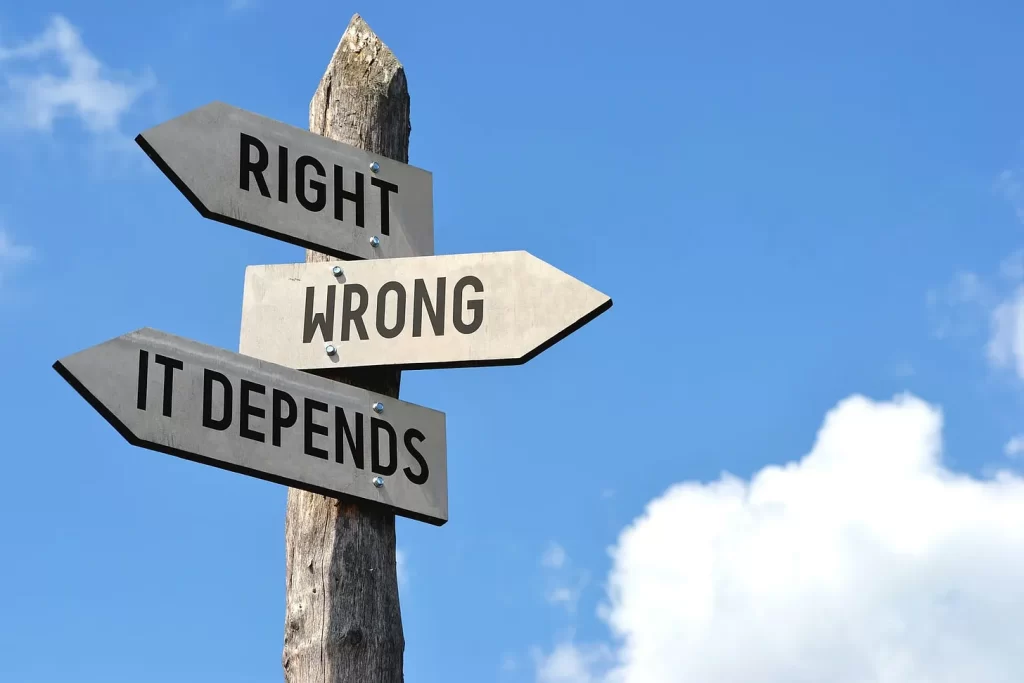
As we have seen, in countries that develop abundant resources and social safety nets, citizens with a higher sense of security have a reduced need to participate in formal religious activities. It is also true that spirituality often increases for people who turn away from organized religion.
There are many religions in the world. Each plays an important role in establishing cultural values for equitable social relationships, but each does this in their own way.
Some religions are more doctrinaire in prescribing very specific moral values (as the United States is experiencing the conflict resulting from Christian doctrines that forbid abortions). Buddhism, Taoism, and Quakerism are religions that place a high value on personal spiritual experiences and advocate for living by principles rather than by dogma.
Research on infants and toddlers demonstrates that all humans are born with a native morality, which is shaped over time by our social environments and cultures.
Morality inevitably intersects with religion, but I argue that morality does not need religion. People with secular beliefs can do well by developing their inherent morality to fit their personal needs and aspirations.
Will people with secular beliefs inevitably slide into the depravity and debauchery Moses witnessed when he presented the Ten Commandments to the tribes of Israel? I think not.
Will the Jacobites need to rush in with their swords drawn to ensure our obedience to religious doctrines that are not of our own making? I hope not.







